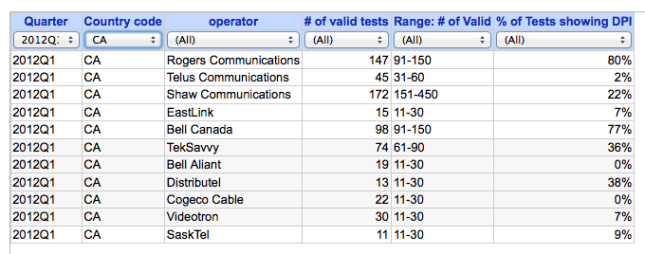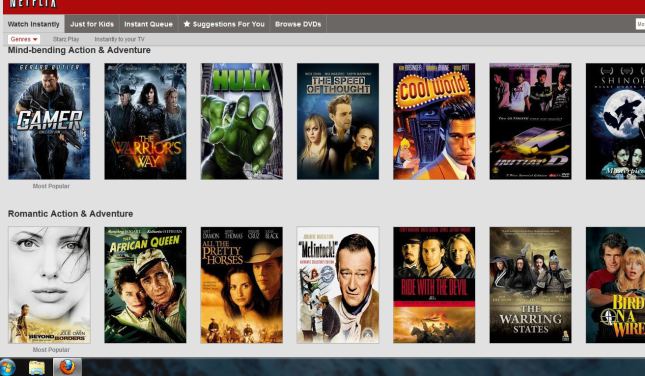We couldn’t have a week of broadband fun here on the blog without talking about that old favourite topic: throttling. You know, what internet providers do to online services and applications they don’t like, and/or that may compete with things they sell.
A group of researchers from around the globe have been using M-Labs, a tool set up by Google, for a while now to keep tabs on internet service providers and their throttling. Back in October of last year, they found that since 2008, Rogers had been the worst ISP in the world when it came to slowing down customers’ connections.
In February, the cable company promised to phase out throttling by the end of this year, with about half of all customers to see results starting in June.
The latest quarterly M-Labs results set a pretty good baseline against which to compare throughout the rest of the year, to see if Rogers is being true to its word. As the pic below shows, about 80% of tested Rogers connections were throttled as of March, 2012. Only one ISP in the world - J:Com in Japan - scored higher. But with a far smaller sampling of tests, the result is less accurate than that for Rogers. Interestingly, despite that promise, the 80% result for Rogers is a small, 1% uptick from the fourth quarter of 2011.

Perhaps the more interesting result, however, is from Bell, which was found to be throttling 77% of connections in the first quarter of 2012. Not only is that good enough for the global silver medal to Rogers’ gold, it’s also a 5% increase from the previous quarter.
That’s a strange result in light of a December letter to the CRTC, where Bell said it would “will withdraw the shaping of P2P traffic on the companies’ networks, with regards to both retail and wholesale traffic, effective 1 March 2012.”
Collectively, these are also strange results given the net neutrality rules established by the regulator in 2009, which stated that throttling should only be used as a last-ditch effort to manage network congestion. As the M-Labs researchers put it in their specific notes on Canada:
The data pattern for Canada is interesting because it shows that BitTorrent throttling by Bell Canada actually increases substantially in late 2010 and 2011, after a 2009 CRTC decision regulating Internet Traffic Management Practices… Bell Canada and Rogers were both among the world’s top 10 throttlers in 2011 and 2012… As of the 1st of March 2012 there is no sign of any change.
Neither Bell nor Rogers has broken their promises regarding the end of throttling yet, but the deadline is now official. Three months from now, when the researchers release their next set of quarterly findings, we’ll be able to see if the two companies are being true to their word. With the trend lines going in the wrong direction, it’s fair to be skeptical as to whether they’ll actually keep those promises.







